Q&A: RAJ PATEL, Writer, activist, and academic
Written on November 27th, 2014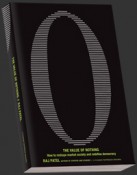 |
Q&A: Frances Moore Lappé, Author – ECOMIND: CHANGING THE WAY WE THINK, TO CREATE THE WORLD WE WANT
Written on October 2nd, 2014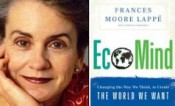 |
Aired: 9/8/13
Originally Aired: 12/30/12
Where do you think the most important changes need to take place to turn things around in terms of big issues like the economy, the environment, and social justice?
Some might say climate change is the critical global issue so it must be clean energy. Others might say nothing will make as much difference for the world’s people as educating and empowering girls and women. Closer to home, a case can be made that public financing of political campaigns would have the most impact on all such issues by making it possible for the power of the United States to become a greater force for good.
All good answers, but this week’s guest gives another answer – and its one that I share. Frances Moore Lappe, who has herself been a force for good at least since the publication of the phenomenal best-seller Diet for a Small Planet in 1971, says that the greatest impact would follow from changing our minds.
In her 18th book, ECOMIND: CHANGING THE WAY WE THINK, TO CREATE THE WORLD WE WANT, Lappé argues that much of what is wrong with the world, from eroding soil to eroding democracies, results from ways of thinking that are out of sync with human nature and nature’s rhythms. Humans are doers, she says. But our capacity for doing is undermined by seven “thought traps” that leave us mired in fear, guilt, and despair — none of which are motivators to action.
Drawing on the latest research in climate studies, anthropology, and neuroscience, she weaves her analysis together with stories of real people the world over, who, having shifted some basic thought patterns, now shift the balance of power in our world. Chapter-by-chapter, Lappé takes us from “thought trap” to “thought leap,” and with each shift, challenges become opportunities.
Q&A: JACOB HACKER & PAUL PIERSON – WINNER-TAKE-ALL POLITICS
Written on June 11th, 2014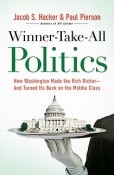 |
Aired 04/17/11
JACOB HACKER the Stanley B. Resor Professor of Political Science at Yale University, is the author of The Great Risk Shift: The New Economic Insecurity and the Decline of the American Dream and The Divided Welfare State. PAUL PIERSON is Professor of Political Science and holder of the Avice Saint Chair of Public Policy at the University of California at Berkeley. He is the author of Politics in Time, Dismantling the Welfare State? Together they are authors of Off Center: The Republican Revolution and the Erosion of American Democracy as well as WINNER-TAKE-ALL POLITICS.
http://www.yale.edu/polisci/people/jhacker.html
http://polisci.berkeley.edu/people/faculty/person_detail.php?person=24
Q&A: RICHARD WILKINSON & KATE PICKETT, Authors – The Spirit Level: Why More Equal Societies Almost Always Do Better
Written on March 2nd, 2014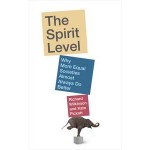 |
Originally Aired: 01/31/10
RICHARD WILKINSON & KATE PICKETT authors of an important new book: The Spirit Level: Why More Equal Societies Almost Always Do Better
In the UK, the Guardian says The Spirit Level “might be the most important book of the year, and The New Statesman named it one of the top ten books of the past decade.
Based on thirty years’ research, The Spirit Level shows that unequal societies are bad for the well-off as well as the poor, when it comes to health and social problems, child well being, life expectancy, infant mortality, obesity, educational scores, drop out rates, illegal drug use, mental illness, homicide, incarceration, CO2 emissions, recycling, social mobility, innovation, and levels of trust.
The good news: If all these ills are related to one measure – income inequality, then, decreasing inequality should be the central goal of our politics because we can be confident that it works.
RICHARD WILKINSON has played a leading role in international research on inequality. He studied economic history at the London School of Economics before training in epidemiology, and is Professor Emeritus at the University of Nottingham Medical School and Honorary Professor at University College London.
KATE PICKETT is a senior lecturer at the University of York and a National Institute for Health Research Career Scientist. She studied physical anthropology at Cambridge, nutritional sciences at Cornell and epidemiology at Berkeley before spending four years as an Assistant Professor at the University of Chicago.
Free Forum Q&A: TERRENCE McNALLY Turning the tables, my turn to answer Qs interviewed by Sara Davidson
Written on February 4th, 2014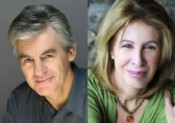 |
Aired: 2/2/14
I am going to take a hiatus from this show in a few weeks, for the first time in 17 years. I need to focus on some other projects, including a book I’m writing, and won’t be able to afford the time to produce and host this show probono.
In anticipation of this upcoming break, I will be the guest this week and SARA DAVIDSON, best-selling author of Loose Change and Leap, whose new book, The December Project will come out in March, will be interviewing me. I’ve long thought it is only fair that I have to answer a few questions and this week it’s going to happen.
